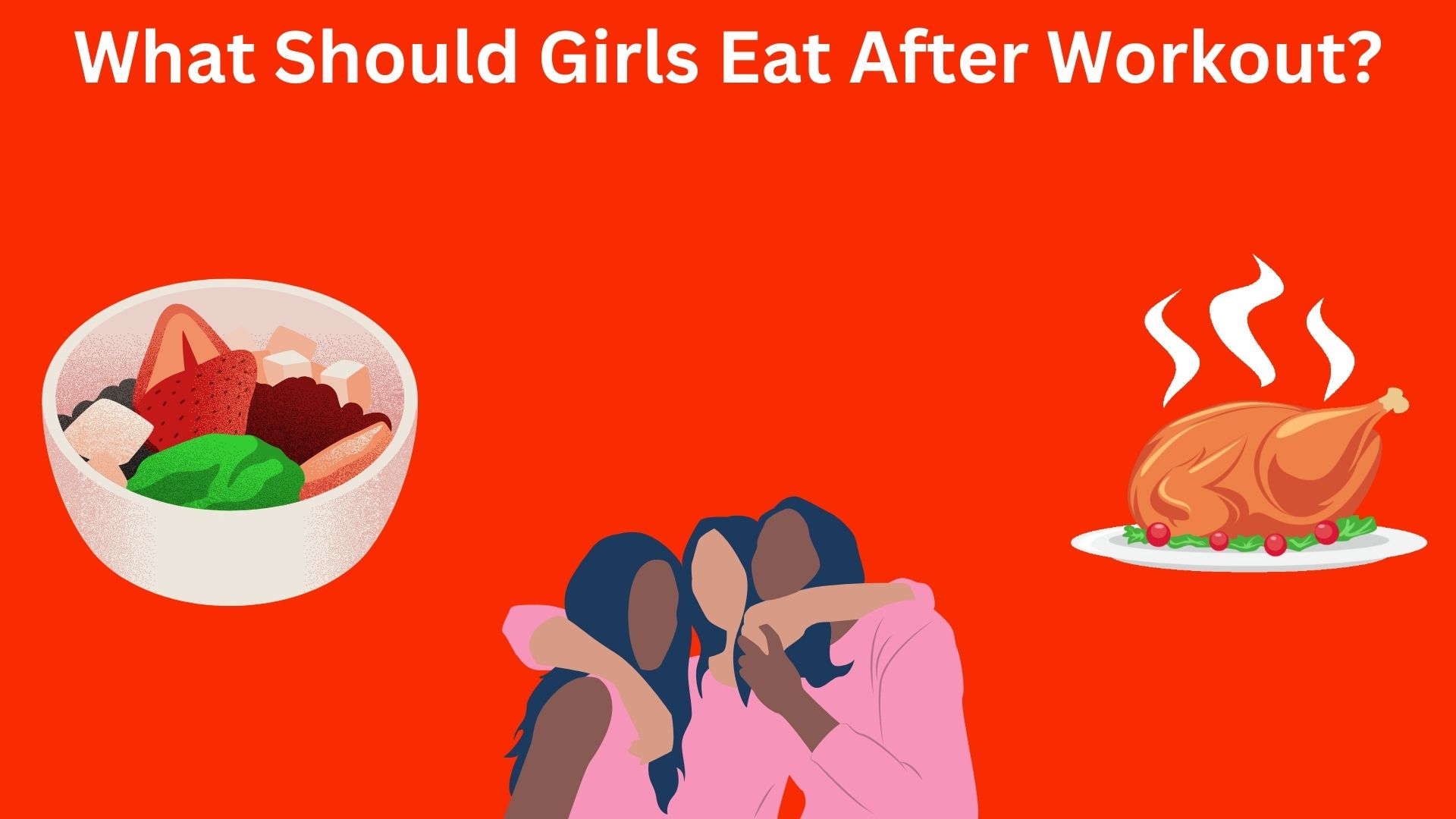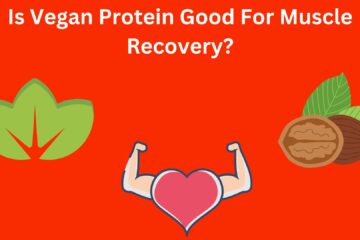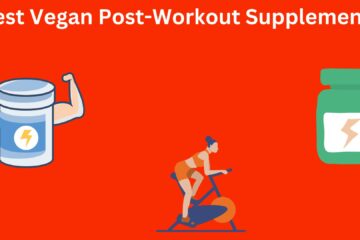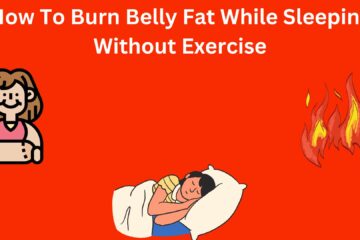Welcome to our “What Should Girls Eat After Working Out?” website. Nutrition is an important part of any fitness plan, and what you eat after a workout can have a big impact on your recovery and performance. This blog will discuss the importance of post-exercise nutrition for women and provide some recommendations for what to eat after a workout.
Exercise causes physiological changes in the body, such as an increase in protein breakdown in the muscles and a decrease in glycogen stores. It is necessary to consume adequate nutrition following exercise in order to repair and rebuild muscle tissue and replenish glycogen levels.
The type and timing of post-exercise nourishment will be determined by the type and intensity of the workout as well as personal factors such as age, body composition, and goals. It is generally advised to have a combination of protein and carbohydrates within the first hour following an exercise.
Protein is essential for muscle repair and growth and can be found in a range of foods, including lean meats, dairy products, and plant-based proteins. Carbohydrates, which can be found in fruits, grains, and starchy vegetables, are crucial for replenishing glycogen stores and supplying energy.
Along with protein and carbohydrates, it is critical to stay hydrated and ingest electrolytes to aid with hydration and recovery. Water and sports drinks are ideal hydration alternatives, and foods like bananas, coconut water, and leafy greens are high in electrolytes.
10 Importance Of Post-Workout Nutrition For Girls
1. Aids in the healing and rebuilding of muscle tissue destroyed during exercise.
Muscles are subjected to physical stress during exercise and might sustain damage. This type of injury is common during the muscle-building process and is required for muscle growth and adaptability. However, in order for your muscles to repair and regenerate, you must provide them with the proper nutrition, which includes protein and other amino acids.
Consuming protein and other nutrients after exercise can aid in the stimulation of muscle protein synthesis, the process by which your body develops new muscle tissue. This is especially crucial for athletes and those who do strength training on a regular basis since it helps to maintain and develop muscle mass over time.
2. Restores glycogen stores, which are an important source of energy during activity.
Glycogen is a complex carbohydrate that your muscles and liver store. It is an important source of energy for your body, especially during high-intensity exercise. When you work out, your body consumes glycogen as fuel, which might deplete your glycogen stores. Consuming carbs after exercise can assist your body rebuild glycogen levels and guarantee that it has enough energy for the next workout or activity.
In addition to boosting energy, replenishing glycogen stores can aid in recuperation and adaptability to exercise. When glycogen stores are depleted, your body may struggle to repair and rebuild muscle tissue, resulting in tiredness and poor performance in subsequent sessions. Consuming carbs after exercise can aid in glycogen synthesis and provide your body with the energy it requires to recover and adapt to the demands of exercise.
3. Assists in the reduction of muscle soreness and inflammation.
As a result of the physical stress imposed on your muscles, exercise can induce muscular pain and inflammation. Certain nutrients, such as protein and antioxidants, can aid to minimize muscle soreness and inflammation after exercise.
Protein is essential for muscle repair and regeneration, and taking it after exercise can aid in stimulating muscle protein synthesis and reducing muscle damage. Antioxidants like vitamins C and E can assist to lessen inflammation by neutralizing the damaging free radicals created during exercise. After exercise, consuming a balanced breakfast or snack that includes protein and antioxidants will assist to enhance muscle repair and reduce muscular discomfort.
It’s important to note that muscle soreness is a normal aspect of the muscle-building process, and some pain after exercise is to be expected. However, by promoting muscle recovery through the correct diet, you can help to prevent pain and the risk of injury or overtraining.
4. Promotes muscle protein synthesis, which aids in the development and maintenance of muscular mass.
Protein consumption after exercise can aid in increasing muscle protein synthesis, which is the process through which your body develops new muscle tissue. This is especially crucial for athletes and those who do strength training on a regular basis since it helps to maintain and develop muscle mass over time.
Exercise, hormones, and nutrition are all known to stimulate muscle protein synthesis. Protein consumption following exercise can aid to promote muscle protein synthesis and enhance muscle repair and regeneration. Protein should be consumed within the first few hours after exercise because this is when muscle protein synthesis is most active.
In addition to promoting muscle growth and repair, boosting muscle protein synthesis can aid in workout recovery and adaptation. You can help to guarantee that your muscles are ready for the next workout or activity by supplying your body with the nutrients it requires to repair and rebuild muscle tissue.
5. Improves workout recovery and adaption.
Physical stress is placed on your body during exercise, and a good diet is critical for promoting recovery and adaptation to this stress. Consuming the proper nutrition after exercise can aid recovery by supplying your body with the building blocks it requires to repair and rebuild muscle tissue.
Aside from aiding muscle recovery, appropriate post-workout nutrition can also aid in other elements of recovery such as hydration and sleep. Consuming water and electrolytes after exercise can help your body rehydrate and function properly. Adequate sleep is also necessary for recuperation, and certain nutrients, such as tryptophan and melatonin, can aid in sleep quality.
Overall, an adequate post-exercise diet can aid in healing and ensure that your body is prepared for the next workout or activity. This can boost performance while lowering the danger of overtraining or injury.
6. Keeps the body hydrated.
Exercise causes your body to lose fluids through perspiration, and it’s critical to replace these fluids to stay hydrated. Proper hydration is essential for many areas of health, including body temperature regulation, cardiovascular function, digestion, and metabolism.
Drinking drinks after exercise can help rehydrate your body and restore fluids lost through sweating. It’s critical to drink plenty of fluids, especially if you’ve been exercising for a long time or in hot or humid weather.
In addition to water, electrolyte-rich fluids such as sports drinks or coconut water can be consumed to assist restore electrolytes lost through sweat. Electrolytes, such as sodium and potassium, are essential for maintaining normal hydration and muscular function. Consuming fluids and electrolytes after exercise can aid in hydration and recuperation.
7. Helps the immune system function.
Exercise can put your body through physical strain, which might temporarily decrease your immune system. Proper nutrition is essential for immune system function, and ingesting particular nutrients after exercise can aid in immune health.
Protein, for example, is essential for the immune function to eat after a workout and can aid to maintain immunological health. Antioxidants, such as vitamins C and E, might also aid immune function by neutralizing damaging free radicals created during exercise.
It’s important to note that, while adequate nutrition can help with immune health, it’s not a replacement for other crucial immune-supportive habits like hand cleaning, getting enough sleep, and controlling stress. A balanced diet rich in nutrients such as protein and antioxidants can assist to maintain immune health, but it’s also crucial to focus on other healthy practices to support overall immunological function.
8. Could increase sleep quality.
Proper nutrition is essential for overall health and well-being, and ingesting specific nutrients after exercise may assist to improve sleep quality. Sleep is essential for healing because it allows your body to repair and rebuild tissues, consolidate memories, and eliminate toxins.
Certain nutrients, such as tryptophan and melatonin, can aid in sleep promotion. Tryptophan is an amino acid that is metabolized to serotonin and then to melatonin, a hormone that aids in the regulation of sleep-wake cycles. Consuming tryptophan-rich foods after exercises, such as turkey and dairy products, may aid to improve sleep quality.
It’s important to note that, while an appropriate diet might help with sleep quality, it’s not a replacement for other crucial sleep-promoting habits like sticking to a consistent sleep schedule and creating a sleep-friendly atmosphere. A varied diet rich in nutrients can help to support general health and well-being, including sleep quality, but it’s also necessary to focus on other good practices to support excellent sleep.
9. It has the potential to boost mood and cognitive performance.
Consuming specific nutrients after exercise may assist to boost mood and cognitive performance. Exercise has been demonstrated to improve mood and cognitive function, and adequate nutrition can aid to supplement these effects.
Omega-3 fatty acids, B vitamins, and iron have all been related to increased mood and cognitive function. Omega-3 fatty acids, for example, are essential for brain function and have been proven to have anti-inflammatory properties that may aid in mood improvement. B vitamins including B6, B9, and B12 are essential for brain function and energy metabolism, and a lack of these nutrients has been related to cognitive impairment and mood disorders. Iron is necessary for the transport of oxygen to the brain and muscles, and a lack of this vitamin has been related to weariness and poor cognitive performance.
It’s important to note that, while adequate nutrition can help with mood and cognitive performance, it’s not a replacement for other crucial mood and cognition-supporting behaviors like stress management, socializing, and getting enough sleep. A balanced diet rich in nutrients can help to support general health and well-being, including mood and cognitive function, but it’s also necessary to focus on other good practices to support optimal mood and cognition.
10. May help to control appetite and support weight management goals.
Proper nutrition is essential for general health and well-being, and ingesting particular nutrients after exercise may aid in hunger control and weight management goals. Exercise can boost appetite, so it’s critical to ingest the correct nutrients afterward to help with healing and refueling the body.
Following exercise with a balanced meal or snack that combines protein, carbs, and healthy fats can help reduce appetite and support weight management objectives. Protein can aid in appetite regulation by slowing digestion and enhancing feelings of fullness. Carbohydrates can also aid in appetite regulation by giving energy and promoting optimal brain function. Healthy fats, such as monounsaturated and polyunsaturated fats, can also aid in hunger regulation by supplying energy and promoting correct hormone activity.
It’s important to note that, while a correct diet can help you reach your weight-loss goals, it’s not a replacement for other crucial weight-loss behaviors like regular physical activity and stress management. Consuming a well-balanced diet rich in nutrients can help to promote general health and well-being, including weight management; however, it is also vital to focus on other healthy practices to support optimal weight management.
What Girl Should Eat After A Workout
1. Protein-rich foods
These can aid in the repair and rebuilding of muscles following an exercise. Chicken, turkey, salmon, beans, tofu, and Greek yogurt are a few examples.
2. Complex carbohydrates
These provide energy to the body and aid in the replenishment of glycogen stores drained during activity. Whole grains, sweet potatoes, quinoa, and oats are a few examples.
3. Fruits and vegetables
These provide essential vitamins, minerals, and antioxidants that can aid with recuperation.
4. Healthy fats
These can aid in hormone production and the maintenance of healthy skin and hair. Avocado, almonds, and olive oil are a few examples.
5. Water
Hydration is essential for healing and overall health. Drink plenty of water throughout the day, especially after exercising.
6. Electrolyte-rich beverages
If you sweat a lot throughout your workout, replacing electrolytes like salt and potassium is a good idea. Coconut water is an excellent choice, as is a sports drink such as Gatorade.
7. Recovery shakes
These might be an easy way to receive a lot of nutrients in a single serving. Look for ones that have a good balance of protein, carbohydrates, and healthy fats.
8. Lean meats
Lean meats contain protein and other nutrients that can aid in muscle rehabilitation. Turkey, chicken, and fish are a few examples.
9. Nuts and seeds
These are high in protein and healthy fats. Almonds, sunflower seeds, and chia seeds are a few examples.
10. Whole grains
These include complex carbohydrates as well as other key elements that can aid in healing. Quinoa, brown rice, and whole wheat bread are a few examples.
Frequently Asked Questions On What Girls Should Eat After A Workout
Protein and carbohydrates should be consumed within the first hour following an exercise. This is the window of opportunity for your body to replace glycogen stores and rebuild muscle tissue. However, depending on the intensity and duration of the activity, as well as individual factors such as age and goals, the timing may vary.
The appropriate protein-to-carbohydrate ratio after a workout will vary depending on a number of factors, including the type and intensity of the workout, individual goals, and body composition. In general, a carbohydrate-to-protein ratio of 3:1 to 4:1 is often recommended as a starting point.
There are no “magic” foods that must be consumed immediately following an exercise. However, it is critical to ingest a combination of protein and carbohydrates to aid with muscle regeneration and glycogen replenishment. Lean meats, dairy products, and plant-based proteins are good sources of protein, whereas fruit, grains, and starchy vegetables are good sources of carbs.
Depending on the timing and intensity of the workout, as well as individual tastes, either a snack or a full meal can be appropriate after a workout. It is normally acceptable to consume a snack after an exercise if you are hungry and the timing is appropriate. It is, nevertheless, acceptable to wait for a complete meal if you are not hungry or it is inconvenient to eat straight away.
Protein supplements, such as powders or bars, can be an easy method to boost protein intake following an exercise. They are, however, unnecessary if you can achieve your protein requirements through a diverse diet that includes a variety of protein-rich foods. When possible, it is preferable to obtain nutrients through entire foods rather than supplements.
Conclusion
Finally, being able to eat after a workout is a vital aspect of any fitness routine because it aids in muscle regeneration and recuperation. Girls should strive to ingest a balance of protein and carbohydrates within the first hour following a workout, as well as water and electrolytes to stay hydrated.
Consuming a protein-carbohydrate mix within the first hour after a workout can aid in muscle regeneration and glycogen replenishment. To assist hydration and recovery, it is also critical to stay hydrated and ingest electrolytes. Girls can improve their fitness regimen and achieve their goals by paying attention to a post-workout diet.




[…] to our blog about vegan protein and its ability to aid in muscle recovery! Protein is a necessary ingredient for the human body, and it plays an important role in muscle […]